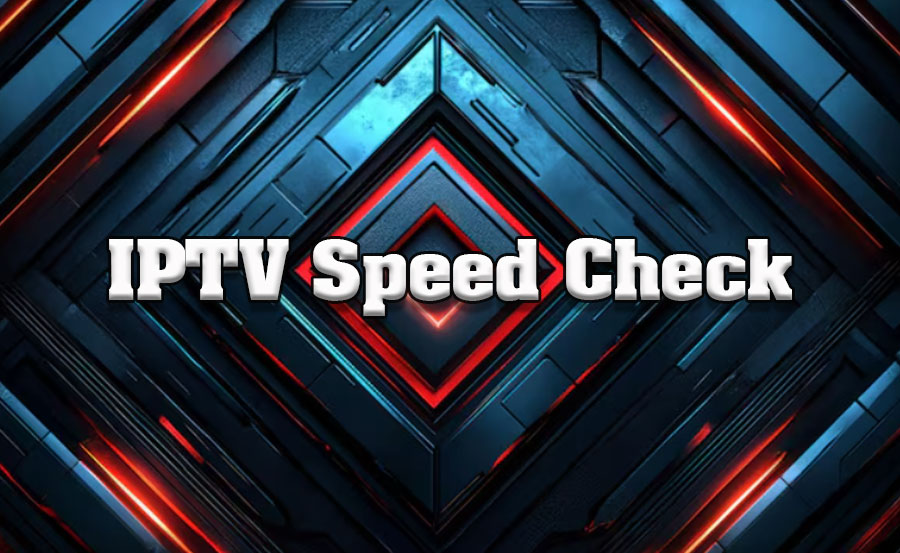Choosing the right internet speed for IPTV streaming is essential for a smooth and enjoyable experience. With IPTV offering a range of streaming options—from live TV and on-demand movies to 4K and even 8K content—your internet speed plays a significant role in delivering quality visuals without buffering or lag. But how much speed is enough, and what factors should you consider? Here’s everything you need to know about internet speed requirements for IPTV and how to ensure a seamless streaming experience.
Buy 1 Year IPTV – Endless Entertainment
Understanding Bandwidth and Speed Requirements for IPTV
Bandwidth, measured in megabits per second (Mbps), determines how much data can be transferred to your device in a given amount of time. IPTV requires a stable connection with sufficient bandwidth to load and play high-definition content smoothly. Here’s a general guideline for typical internet speeds based on the type of content you plan to stream:
- Standard Definition (SD): 3-5 Mbps
- High Definition (HD): 5-10 Mbps
- Full HD (1080p): 10-15 Mbps
- 4K Ultra HD: 20-25 Mbps
- 8K Streaming: 50 Mbps and above
These speeds ensure a smooth playback experience under ideal conditions. However, there are additional factors to consider that can influence the actual speed you need.
Factors Affecting Required Internet Speed for IPTV
Several elements can impact the necessary speed for IPTV, so let’s break down each one to understand how it contributes to your overall streaming experience.How to Enhance IPTV Quality on Android Box: Expert Tips
1. Video Quality and Resolution
Higher video quality, such as 4K or 8K, requires significantly more bandwidth. For instance, streaming a 4K movie with HDR requires roughly 25 Mbps, whereas HD content may only need 10 Mbps. If you’re planning to watch IPTV in 4K, ensure your internet plan supports this level of bandwidth to avoid buffering.
2. Number of Devices Connected
If multiple devices are connected to the same network, each one consumes a portion of your available bandwidth. When streaming IPTV in a household with multiple users, you’ll need additional bandwidth to accommodate everyone. For example, if one person is streaming in HD and another in 4K, you’ll need at least 35-40 Mbps to ensure a lag-free experience for both.
3. Type of IPTV Content
Different types of IPTV content demand varying levels of stability and speed. Live sports, for instance, often require a higher bandwidth due to the fast-paced action and high frame rates, compared to on-demand movies or TV series. If you’re an avid sports fan, you may need a higher speed to enjoy smooth, real-time viewing without interruptions.
4. Network Stability
In addition to speed, network stability is crucial for IPTV streaming. Frequent fluctuations or drops in speed can lead to buffering or disconnections. To minimize these issues, consider a wired Ethernet connection for devices that support it, as it’s generally more stable than Wi-Fi. If you’re using Wi-Fi, positioning your router closer to your streaming device can also enhance stability.
5. Internet Service Provider (ISP) Bandwidth Policies
Some ISPs may throttle bandwidth during peak times or if you exceed a certain data usage limit. If you experience slower speeds during specific hours, it may be due to your ISP’s policies. Contact your provider to understand any bandwidth limitations or consider upgrading to a plan without data caps for uninterrupted IPTV streaming.Understanding IPTV: What It Is and How It Works for Modern Streaming
Calculating Your Ideal Internet Speed for IPTV
To determine the ideal speed, assess the following:
- Identify the highest video resolution you plan to stream (e.g., HD, 4K).
- Consider the number of simultaneous IPTV streams in your household.
- Factor in other online activities on the same network, like browsing, gaming, or downloading.
For example, if you plan to stream IPTV in 4K on one device, with another person watching in HD on a separate device, you’ll need a combined bandwidth of approximately 35 Mbps. This calculation provides a buffer for other minor internet activities without sacrificing streaming quality.
Tips to Optimize Your IPTV Streaming Experience
- Upgrade Your Router: Using a modern, high-speed router ensures you’re getting the most out of your internet connection. Look for routers that support dual-band or tri-band Wi-Fi, as they allow for more efficient distribution of bandwidth across devices.
- Use a Wired Connection: If possible, connect your streaming device directly to the router using an Ethernet cable for a stable connection.
- Close Background Apps: On smartphones or tablets, close any unnecessary background applications to free up additional bandwidth for IPTV streaming.
- Consider a VPN with Care: While VPNs can protect your privacy, they may slow down your internet speed. Choose a high-speed VPN if privacy is a concern, or disable it when streaming IPTV.
Final Recommendations
For a basic IPTV setup with HD streaming on a single device, 10 Mbps should be sufficient. However, if you want to enjoy 4K content or have multiple people streaming simultaneously, a plan offering 30 Mbps or more is recommended. For households with high-definition needs on multiple devices, plans offering speeds of 100 Mbps or higher ensure smooth streaming without interruption, even during peak hours.
Conclusion
Choosing the right internet speed for IPTV comes down to understanding your streaming habits, video quality preferences, and household demands. By selecting a speed that meets your requirements, optimizing your setup, and maintaining network stability, you can enjoy a seamless IPTV experience without buffering or quality issues. IPTV has opened the door to flexible, on-demand entertainment, and with the right internet speed, you can unlock its full potential.

